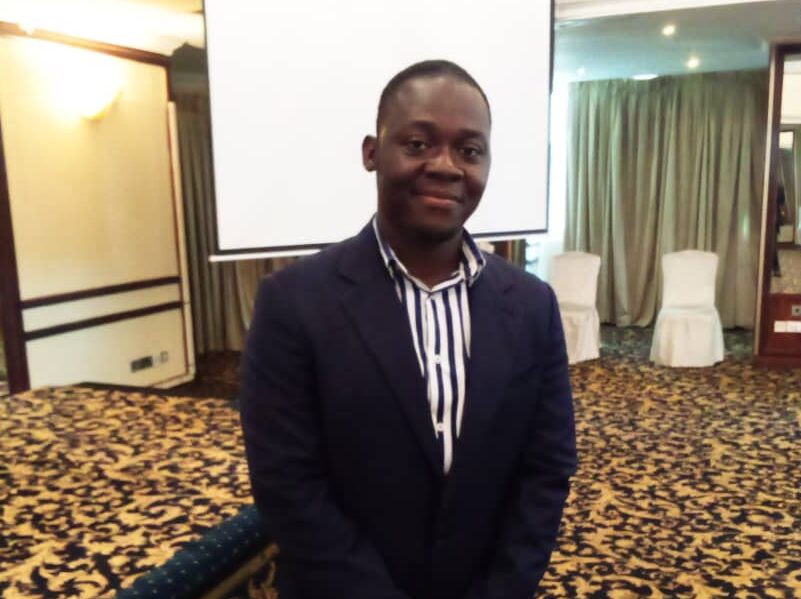“When you see that in order to produce, you need to obtain permission from men who produce nothing; when you see that money is flowing to those who deal, not in goods, but in favours; when you see that men get richer by graft and by pull than by work, and your laws don’t protect you against them, but protect them against you; when you see corruption being rewarded and honesty becoming a self-sacrifice, you may know that your society is doomed,” said Ayn Rand.
On a day like this (March 6), it difficult to resist the temptation of talking about our leaders—past and present. Although I believe the development of a nation demands that every citizen plays his/her part, I believe strongly in the saying that, ‘‘leadership is the cause, any other thing the effect. When a leader shows a clear, definite and worthy vision to his followers, they cannot help but join efforts to meet the vision.
On March 6, 1957, men and women, girls and boys, Ex-service men, noblemen and commoners, gathered at the Old Polo Grounds to listen to the declaration of Ghana’s independence by Osagyefo Dr Kwame—a powerful speech that was punctuated with screams of joy was delivered. And as the people listened, a common thought run through them: the thought that they were now free people. And with that, they realized that from that day forward Ghana had to assume the responsibility of controlling its own destiny. On that day, Nkrumah told us that the black man was capable of managing his own affairs. As to whether we, Ghanaians, are managing our affairs well or not, is contentious. What we all agree is that our country is lagging behind in development.
The people dispersed from the Polo Grounds after the declaration with a common vision of making Ghana the hope of Africa. They held the faith that whenever they were called upon to pass the country to the next generation; they will pass on to them a Ghana that is more prosperous, just and free than they took it from the British. A faith that hailed from their believe that with liberty they could dream and achieve. That with their God-given right they could achieve all that they could imagine.
To conclude that Ghana hasn’t made strides is unfair. But with our eyes fixed on the sacrifices of our founders, the price they paid for our freedom, the precious blood lost in the course of our independence, we cannot be proud of our progress so far. Counting the talents of this nation, looking at our enormous natural resources, and all the other blessings we are endowed with, we cannot be proud of our progress so far. Considering the enormous challenges that lie before us, we cannot be proud of our progress so far.
Covid-19 gave us more reason to mock our progress, as it revealed the deficiencies of our nation to us—deficiencies that have persisted for decades. Insufficient hospitals and healthcare facilities, lack of central data system, so that even if government has enough money or support to give to citizens in moments of disaster or pandemic, it can easily find out who needs it and how to get it to them. We saw how the deficit in affordable housing played out during the lockdown, and we saw the number of people who went to bed early to escape the misery of hunger during the lockdown.
A lot can change if our leaders will repose confidence in the ingenuity and talents of the Ghanaian. Most of us, including our leaders, have benefited from traditional medicine. We know it works, yet we pay less attention to herbal medicine. The reason we never even cared to find out if our herbalists could have a cure for Covid-19, but jumped abroad to queue for the vaccine. That is not to suggest that it isn’t wise that our government procured the vaccine for us, but to suggest that if we invest more in ourselves, in technology and medicine, we will do ourselves more good.
The increasing political polarization that keeps us apart from uniting toward development can’t be more dangerous. Our allegiance to our political parties taking precedence and dominance over our allegiance to this nation can’t be more dangerous. But how do we resolve our differences in this time of increasing diversity? I believe that putting our nation first, concentrating more on the things that unite us, will work magic.
Each passing day brings us closer to a dangerous point: a point where just about every Ghanaian will accept that it is okay to make money at the expense of this nation, a point where we no longer have patriots. Each passing day also presents opportunity to governments to restore trust in us, to invest more in us and to break us away from the shackles of poverty.
There is nothing as gratifying as being free. And with this our freedom, we can create the Ghana we want, but that will take collective effort and ethical leadership.
By Rahim Newton

